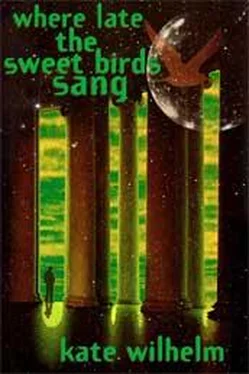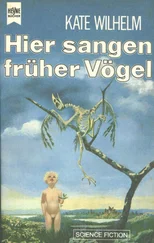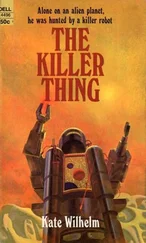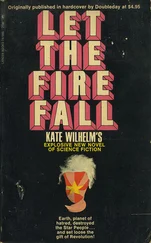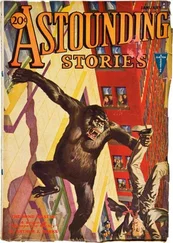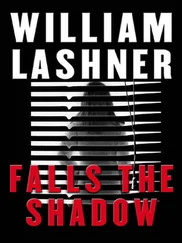And if he had, why had he? They had lost time; it would take several months to clean up the mess completely, but they had planned to discontinue the cloning anyway until they were ready to start the mass production later in the spring. Nothing had been changed in their plans, except that now they would work on the stream, make it failproof, set up a new auxiliary system of generating power and improve everything generally.
Only the human implantations would be delayed beyond the target date already set for them. The preliminary work of cloning the cells, all done in the laboratory, would have to wait until spring when the lab was cleaned, the computer programmed anew . . . Why, then, had Mark been so self-satisfied? Barry couldn’t answer that question, nor could his brothers when they discussed it.
Throughout the winter Mark made his plans for the expedition to the coast. He would not be allowed to take any of the experienced foragers, who were needed to finish clearing out the warehouses in Philadelphia. He began training his group of thirty fourteen-year-olds while snow was still on the ground, and by March he said they would be ready to start as soon as the snow melted. He presented his provisions list to Barry for his approval; Barry didn’t even glance at it. The children would carry oversized packs, so that if they found salvageable items they could bring back as much as they could carry. Meanwhile, the other, more important forces who were going to Philadelphia were also being readied, and more attention was being paid to their needs than to Mark.
The laboratory was ready to operate again, the computer reprogrammed, when it was discovered the water flowing through the cave was contaminated. Somehow coliform bacteria had infiltrated the pure cave water, and its source had to be found before they could start operations.
It had been one thing after another, Barry and Bruce agreed. The fire, the landslide, missing supplies, misplaced drugs, now the contaminated water.
“They aren’t accidents,” Andrew said furiously. “Do you know what people are saying? It’s the work of the forest spirits! Spirits! It’s Mark! I don’t know how or why, but it’s all his doing. You’ll see, as soon as he leaves with his group, it will all stop. And this time when he comes back, if he does, we terminate him!”
Barry didn’t object; he knew it would be useless. They had determined that Mark, now a man of twenty, could not be allowed to exert his influence any longer. If he hadn’t come up with his plan to scout the shipyards at Norfolk, it would have been done sooner. He was a disturbing element. The young clones followed him blindly, took his orders without question, and looked on him with reverential awe. Worse, no one could anticipate what he might do, or what might stir him into action of some sort. He was as alien to them as a being of another species; his intelligence was not like theirs, his emotions were not like theirs. He was the only one who had wept over the deaths of the radiation victims, Barry remembered.
Andrew was right, and there was nothing he could do to change that. At least, if Mark was responsible for the series of accidents, they would stop and there would be peace for a while in the valley. But the day Mark led his group out on foot, it was found that the corral had broken down at the far end and the livestock had wandered out and scattered. They were all rounded up except two cows and their calves and a few sheep. And then the accidents did stop, exactly as Andrew had predicted.
The forest became thicker each day, the trees more massive. This had been a park, protected from cutting, Mark knew, but even he was awed by the size of the trees, some of them so large that a dozen youngsters grasping hands could hardly reach around them. He named those he knew: white oak, silverbell, maple, a grove of birches . . . The days were warm as they headed south. On the fifth day they turned west by southwest, and no one questioned his directions. They did what they were told to do cheerfully and quickly and asked nothing. They were all strong, but their packs were heavy, and they were very young, and it seemed to Mark they were going at a crawl when he wanted to run, but he didn’t push them too fast. They had to be in good shape when they arrived at their destination. In the middle of the afternoon of the tenth day, he told them to stop, and they looked at him, waiting.
Mark surveyed the wide valley. He had known from studying the maps that it was here, but he hadn’t realized how beautiful it would be. There was a stream, and on either side of it the land rose enough not to be in danger of flooding, but not so steeply that it would be difficult to get water. This was the fringe of the national forest; some of the trees were the giants they had been seeing for days now, others were younger, and would make the logs they would need for their buildings. There was level ground for their crops, grazing ground for the livestock. He sighed, and when he faced his followers he was smiling broadly.
That afternoon and the following day he started them building lean-tos for temporary shelter; he laid out the corners of the buildings he ordered them to erect, tagged the trees they were to cut and use for the buildings and their campfires, paced off the fields they were to clear, and then, content they had enough to keep them busy until he returned, he told them he was leaving and would return in a few days.
“But where are you going?” one of them asked, glancing about now as if questioning for the first time what they were doing.
“It’s a test, isn’t it?” another asked, smiling.
“Yes,” Mark said soberly. “You could call it a test. In survival. Are there any questions about any of my instructions?” There were none. “I’ll return with a surprise for you,” he said, and they were content.
He trotted effortlessly through the forest toward the river, and then he followed the river north until he reached the canoe he had hidden in the undergrowth weeks before. In all, it took him four days to return to the valley. He had been gone over two weeks, and he was afraid it might have been too long.
He approached from the hillside above the valley and lay down in some bushes to watch and wait for darkness. Late in the afternoon the paddle wheel came into view, and when it docked people swarmed out and lined up shoulder to shoulder to unload the boat, passing the salvage from one to the next, onto the shore, and into the boathouse. When lights came on, Mark moved. He started down to the old house, where he had hidden the drugs. Two-thirds of the way down he paused and dropped to his knees. To his right, a hundred yards away, was the cave entrance; the ground had been trampled, the limestone slabs had been covered with dirt. They had found his entrance and sealed it off.
He waited until he was certain no one was below him watching the house, and then he cautiously made his way down the rest of the way, bellied under the bushes that grew thick about the house, and slid down the coal chute to the basement. He didn’t need a light to find the package, cached behind bricks he had pried loose months earlier. There too was the bottle of wine he had hidden. Working quickly, he added the stolen sleeping pills to the wine and shook it vigorously.
It was dark when he climbed the hillside once more and hurried toward the breeders’ quarters. He had to get there after they were in their rooms, but before they were asleep. He crept to the building and watched outside the windows until the night nurse made her rounds with the tray. When she had left the dorm room where Brenda and five other women slept, he tapped lightly on the window.
Brenda grinned when she saw him. She opened the window quickly, and he climbed in and whispered, “Turn off the light. I have wine. We’ll have a party.”
Читать дальше
